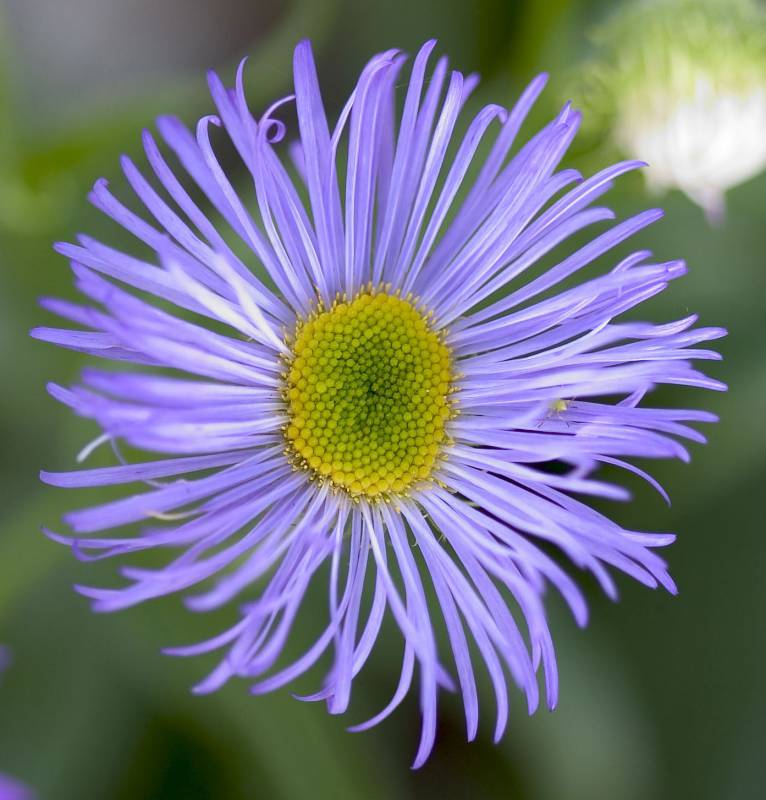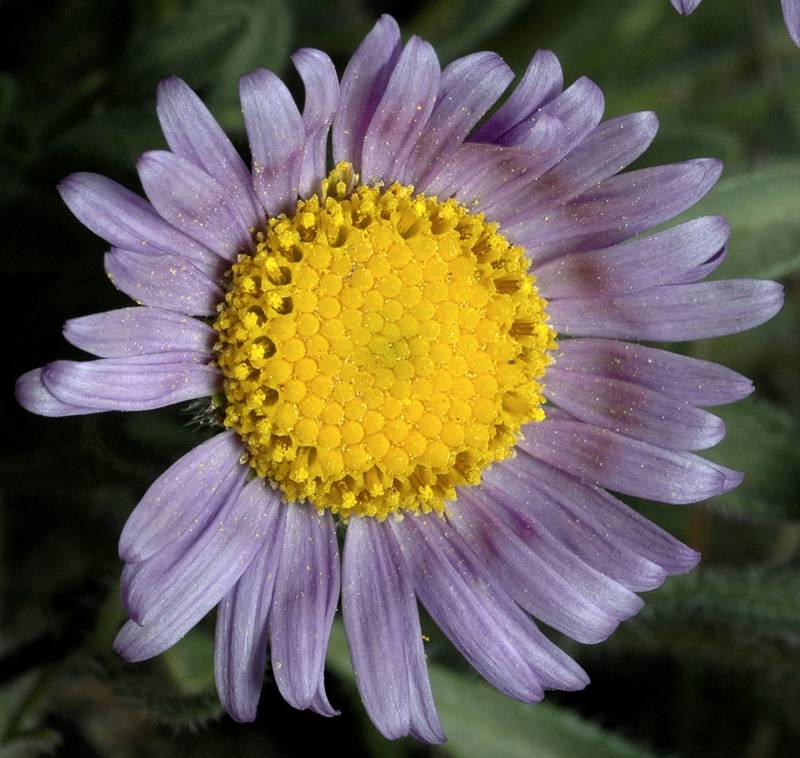|
showy daisy, showy fleabane, splendid fleabane
|
hairy-seeded daisy, cushion fleabane
|
| Perennial from a short, woody base, 1.5-8 dm. tall, the stems clustered, amply leafy, glabrous below the inflorescence. |
Taprooted perennial with short-branched, woody base; stems to 15 cm. high; plants more or less spreading-hairy and glandular throughout. |
Leaves glabrous, triple-nerved, entire, the lower oblanceolate or spatulate, petiolate, mostly deciduous, the other becoming sessile but ample. |
Basal leaves linear-oblanceolate to spatulate, up to 8 cm. long and 12 mm. wide, the cauline leaves reduced. |
Heads 1-13 in a open inflorescence; involucre 6-9 mm. high, glandular; rays 65-150, blue or rarely white, 9-18 mm. long and 1 mm. wide; pappus 20-30 bristles, a few of the outer ones shorter. |
Heads solitary, hemispheric, the disk 9-20 mm. wide; involucre 5-9 mm. high; rays 15-45, pale pink or purple to deep violet, 4-15 mm. long and 1.3-3.6 mm. wide; pappus of 20-30 capillary bristles. |
Achenes 2-nerved. |
Achenes densely covered with long, silky hairs. |
|
|
|
|
| June-August |
April-June |
| Prairies and forest openings from the lowlands to middle elevations in the mountains. |
Dry, open, typically rocky areas, often with sagebrush. |
Occurring on both sides of the Cascades crest in Washington; British Columbia to Oregon, Nevada, and Arizona, east to the Rocky Mountains and northern Great Plains.
|
Occurring east of the Cascades crest in Washington; British Columbia to Oregon, east to western Idaho.
|
| Native |
Native |
| Not of concern |
Not of concern |
E. acris, E. aliceae, E. annuus, E. aureus, E. basalticus, E. bloomeri, E. caespitosus, E. chrysopsidis, E. compositus, E. corymbosus, E. davisii, E. disparipilus, E. divergens, E. eatonii, E. elatus, E. filifolius, E. flettii, E. glacialis, E. howellii, E. inornatus, E. karvinskianus, E. leibergii, E. linearis, E. lonchophyllus, E. nivalis, E. oreganus, E. peregrinus, E. philadelphicus, E. piperianus, E. poliospermus, E. pumilus, E. salishii, E. strigosus, E. subtrinervis |
E. acris, E. aliceae, E. annuus, E. aureus, E. basalticus, E. bloomeri, E. caespitosus, E. chrysopsidis, E. compositus, E. corymbosus, E. davisii, E. disparipilus, E. divergens, E. eatonii, E. elatus, E. filifolius, E. flettii, E. glacialis, E. howellii, E. inornatus, E. karvinskianus, E. leibergii, E. linearis, E. lonchophyllus, E. nivalis, E. oreganus, E. peregrinus, E. philadelphicus, E. piperianus, E. pumilus, E. salishii, E. speciosus, E. strigosus, E. subtrinervis |
|
|
| |
BC,
OR,
WA
Flora NW,
PNW Herbaria
WildflowerSearch
iNaturalist (observations)
USDA Plants Database



